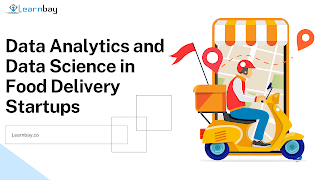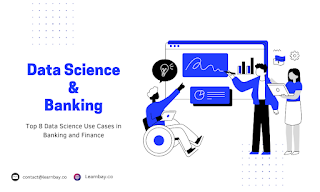Top 10 Data Scientist Skills for 2023 Employment
Big data wranglers with a unique combination of skill sets are known as data scientists. You cannot become a great data scientist by solely possessing technical credentials. To become an enterprise data scientist who can provide value to the organization, one must also possess various other data science capabilities, including computational prowess, communication skills, machine learning, statistics, etc.
You won't need to spend a lifetime learning about data to become a data scientist, so don't worry. Are you unsure about how to begin your career in data science? To match the data scientist job function, I have created a thorough list of data scientist abilities. Also if you have decided to start now, then sign up for an instructor-led data science course in Bangalore today.
Data Scientist Skills: Market Demand until 2023
The career with the most demand and growth over the next ten years will be that of a data scientist, according to the World Economic Forum's Future of Work Report 2020.
Around 31,000 job openings for the data scientist position were posted on LinkedIn as of March 2022, and more than 250,000 people had already described themselves as data science experts.
The US will see a 50% to 60% mismatch between the necessary demand and supply of analytical skills (McKinsey Study).
Essential Data Scientist Skills for 2023
A professional must have more advanced degrees, data analytics expertise, and a strong foundation in computers since the position of a data scientist is more advanced than other big data roles. A potential data scientist will have a solid foundation if they are knowledgeable with and have experience with the following data science skills:
Educational Programs for a Data Scientist
A Master's or Ph.D. program in formal education is required to pursue a successful profession as a data scientist. This rule has major exceptions since anybody with high school credentials and an in-depth understanding of computer science may become a data scientist.
A data scientist typically majors in Mathematics, Statistics, Computer Science, and Engineering. Workers without a background in computer science need not fear, as many academic institutions offer undergraduate data science programs comparable to computer science degrees.
Taking up a data science certification course in Bangalore from the best institute will also help you become an Aspiring Data Scientist.
Technical Skills Needed for Data Science
A professional must be proficient in various technologies, especially open-source ones like R Language, Java, C++, Python Programming, and Hadoop, and possess a solid understanding of various NoSQL database technologies like MongoDB, HBase, and CouchDB to pursue a successful big data scientist career.
Python and R
In order to become an "Enterprise Data Scientist" and not simply a data scientist, a professional must become proficient in Python and R.
Statistics is the core of data science programming. To build industry use-cases for workforce analytics, customer analytics, and marketing analytics using various data science techniques like machine learning, statistical computing, mathematical models, and algorithms, professionals must learn Programming with R and Python on actual big data systems environments like Hadoop, Oracle, or SAP HANA.
Hadoop
A data scientist must study Hadoop because it is a well-liked open-source platform for organizing and manipulating massive datasets from many sources and because data science encompasses large-scale data analysis, examining enormous datasets, mining them, and speeding up data-driven innovation.
A data scientist must be knowledgeable about various Hadoop subsystems, including the Distributed File System, MapReduce, Pig, Hive, Sqoop, and Flume. Hive and Pig experience is a great selling point for data scientists. A data scientist's knowledge base is enhanced by experience with Hadoop and cloud solutions like Amazon S3.
NoSQL
Working with unstructured data is crucial for a data scientist, whether audio or video streams, social media posts, or biometric data. As unstructured data analysis makes up a large portion of data science, having an extensive understanding of NoSQL databases like MongoDB or HBase is essential for creating and running complicated queries on unstructured data.
Machine Learning
Data mining, supervised and unsupervised learning, and pattern identification are skills that a data scientist should be proficient in. Neural Nets, Decision Trees, SVM, and Clustering are a few machine-learning principles that need to be grasped. You may obtain this competence by enrolling in a course that teaches you how to handle and juggle data.
Data Visualization Tools
A picture speaks a thousand words. A data scientist must have the ability to communicate data-driven insights using visual means effectively. Data scientists should be able to explain the results in a way that both technical and non-technical audiences can understand.
Consequently, having a thorough understanding of various data visualization technologies like Tableau, D3.js, and ggplot enables data scientists to explain their data-driven insights in plain English.
Probability and Statistics
Prediction and estimation are essential components of data science. Probabilistic theory and other statistical techniques are linked with each other, allowing data scientists to:
Look for abnormalities in the data.
Analyze data to find trends or patterns.
Figuring out the relation.
Forecasting future patterns, among other things.
It is essential to be familiar with various probability and statistical concepts, including Measurement Level of Data, Population or Sample Data, Measures of Central Tendency, Measurements of Variability, and Measures of Asymmetry.
Non-Technical Skills Needed for Data Science
The 3 C's
The three C's — curiosity, common sense, and communication skills — are key components of the job of a data scientist. An organization is often unaware that it has a data-driven issue, but a data scientist's curiosity can open doors for important data insights. A data scientist's domain expertise is essential for formulating any issue description or hypothesis and for
using common sense and business principles.
To ensure that the approach used to solve a particular problem is appropriate, a great data scientist interacts with diverse people inside an organization. Data scientists that can effectively and concisely explain the technical results of a data-driven challenge to non-technical teams are in high demand by organizations.
In order to express patterns and links between the mined big data to the marketing team, corporate leaders, and development teams, a data scientist must be able to articulate and understand application needs and business requirements and figure out how to do all of these things. Yet to complete all of these tasks well, a data scientist needs to be an effective storyteller who can utilize the data to convey a clear message to everyone.
Innovation
A data scientist doesn't just play with data and look around. An excellent data scientist must have creative and inventive thinking skills. They should be curious to learn more and use their inventiveness to discover unique things. A data scientist's inventiveness aids them in identifying areas where data may be valuable and result in lucrative outcomes for a business.
Data Intuition
It takes more than just technical proficiency to succeed as a large data scientist; a data scientist must also have a strong feel for data. A skilled data scientist does more than simply add every feature to a machine learning model and examine the results.
Before providing inputs to a machine learning model, a big data scientist must determine whether the data makes sense. The numerous types of inquiries a big data scientist should consider are as follows:
Based on the data distribution, which machine learning model should they employ?
What does it indicate if a data point is absent, and what steps can they take to cope with it?
Do the features serve a purpose and express what they are intended to?
All of these questions have different answers depending on the type of issues a data scientist is addressing and how the data is logged. A competent data scientist must search for and respond to all potential circumstances.
Business Expertise
To better understand the issues the organization is attempting to address, data scientists must have significant business knowledge in the sector in which they are employed. In the discipline of data science, it is necessary to identify the crucial issues for a company and the fresh approaches that may be taken to use data to address those issues.
Combining a variety of educational degrees, technical abilities, and non-technical talents with years of experience is an excellent formula for success in data science. With so many skills to learn and a strong desire to work for prestigious IT firms, finding a job as a data scientist is undoubtedly challenging.
Becoming a data scientist is not very simple because of the fierce competition and much more difficult abilities required to grasp the field. Beyond just attending math and statistics classes, engage in practical data science projects to solve real-world big data issues that enterprises may face. If you're eager to start working in data science and want to get experience, a data science course in Pune will help you with live projects.




Comments
Post a Comment